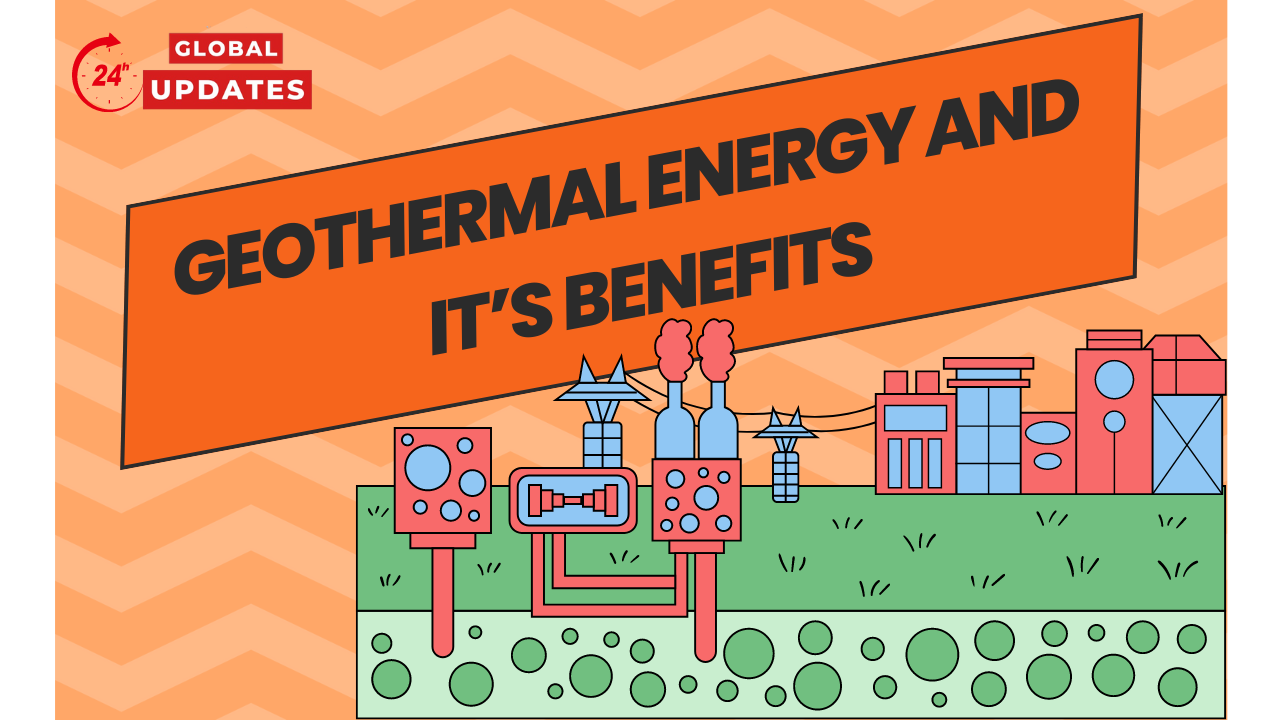Geothermal Energy and Their Benefits
Geothermal energy is a renewable energy source that harnesses heat from the Earth’s core to generate power. In this article, we will explore what geothermal energy is, how it works, and its benefits, especially for India.
What is Geothermal Energy?
Understanding Geothermal Energy
Geothermal energy is the heat derived from the Earth’s internal heat sources. This energy is stored in rocks and fluids beneath the Earth’s crust and can be used for various applications such as electricity generation, heating buildings, and more.
How Geothermal Energy Works
The Earth’s core generates heat, which warms the surrounding rocks and water. This heat can be accessed by drilling wells to tap into the hot water and steam. The steam is then used to drive turbines, which generate electricity. This process is continuous and provides a stable source of energy.
Benefits of Geothermal Energy
Environmental Benefits: One of the most significant benefits of geothermal energy is its minimal impact on the environment. It produces very low greenhouse gas emissions compared to fossil fuels, making it a cleaner alternative. Geothermal power plants have a small footprint, which helps preserve natural landscapes.
Economic Benefits: Geothermal energy is cost-effective in the long run. While the initial setup costs can be high, the low operating and maintenance costs make it a viable option. It also provides energy independence, reducing reliance on imported fuels, which can help stabilize energy prices in India.
Reliability and Sustainability: Geothermal energy is highly reliable. Unlike solar or wind energy, it is not dependent on weather conditions. This ensures a constant supply of electricity. Additionally, geothermal resources are sustainable as long as they are managed properly, providing an endless supply of energy.
Job Creation: The development and maintenance of geothermal power plants can create numerous job opportunities. From drilling and construction to plant operations and maintenance, geothermal projects can boost local economies and provide employment to many.
Geothermal Energy in India
Potential in India
India has significant geothermal potential due to its geological conditions. Regions like the Himalayas, Western Ghats, and certain parts of Central India have high geothermal gradients, making them suitable for geothermal energy development.
Current Projects and Future Prospects
India has started to explore geothermal energy with pilot projects in states like Gujarat and Chhattisgarh. These projects aim to demonstrate the viability of geothermal energy and pave the way for larger-scale developments. With proper investment and government support, geothermal energy can become a crucial part of India’s energy mix.
Challenges and Solutions
While geothermal energy has immense potential, it also faces challenges such as high initial costs and technological barriers. However, advancements in technology and increased investment can overcome these hurdles. Government policies and incentives can also play a significant role in promoting geothermal energy projects.

Comparison with Other Renewable Energy Sources
Geothermal vs. Solar and Wind Energy
Geothermal energy has several advantages over solar and wind energy. It provides a consistent and reliable power supply, unlike solar and wind, which are intermittent. However, the initial costs of geothermal energy are higher. Solar and wind energy have lower upfront costs but require storage solutions to manage their variability.
Complementing Other Renewables
Geothermal energy can complement other renewable energy sources to create a balanced and resilient energy system. By integrating geothermal with solar and wind, we can ensure a steady and reliable supply of renewable energy.
Conclusion
Geothermal energy offers numerous benefits, from environmental sustainability to economic advantages. It holds great promise for India’s energy future, provided the challenges are addressed through technological advancements and supportive policies. By investing in geothermal energy, India can diversify its energy sources and move towards a more sustainable and reliable energy system.
For more information on renewable energy, you can check out our articles on The Power of Hydropower Energy and Top 5 Renewable Energy Sources.
